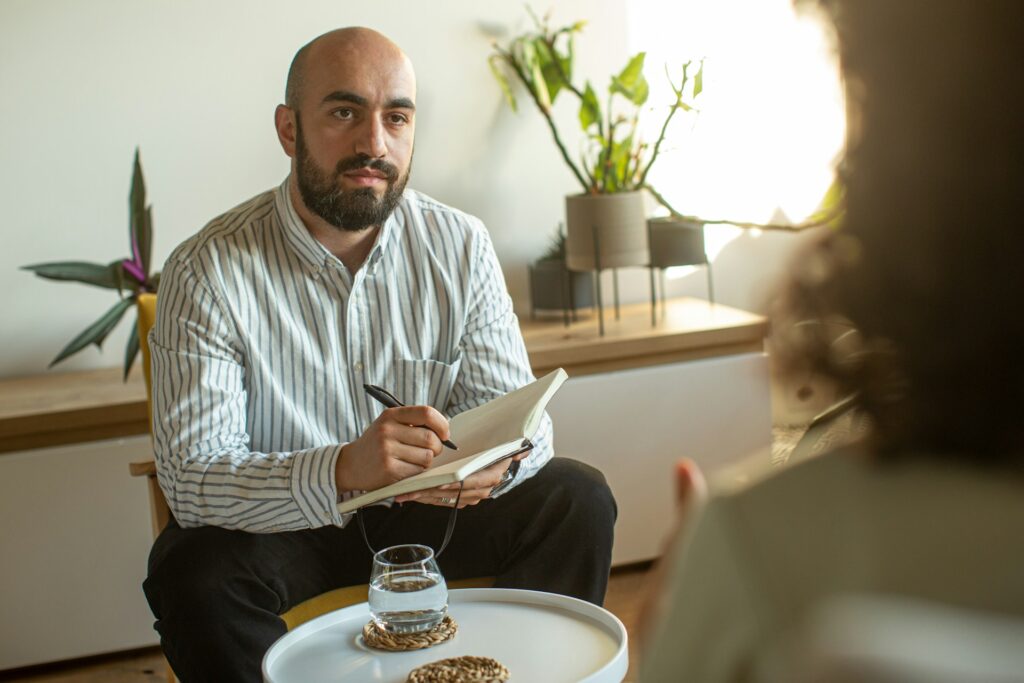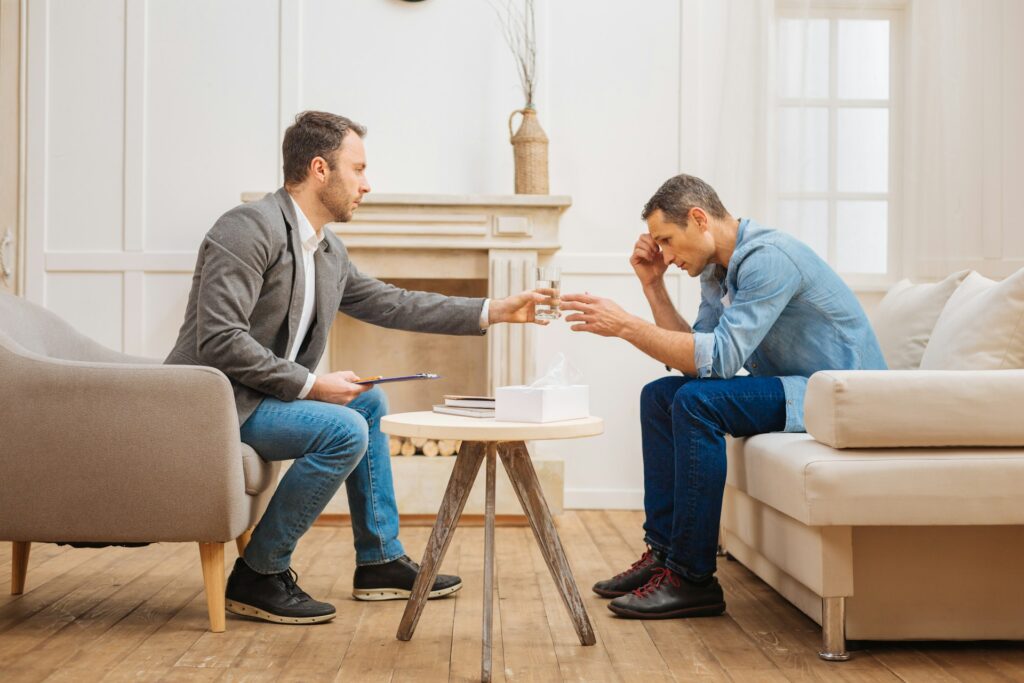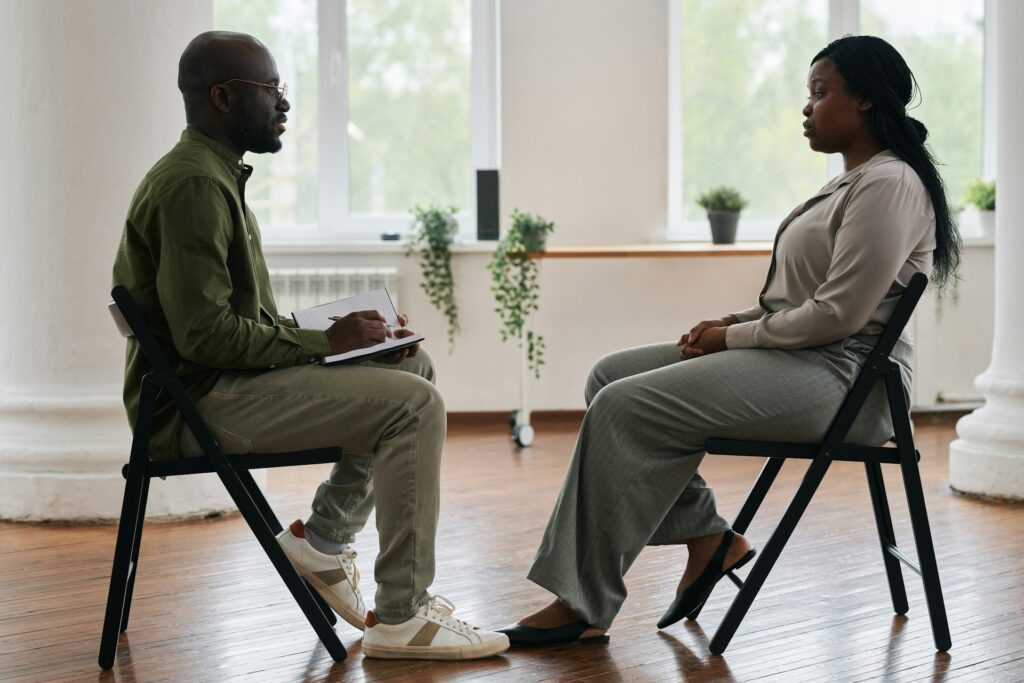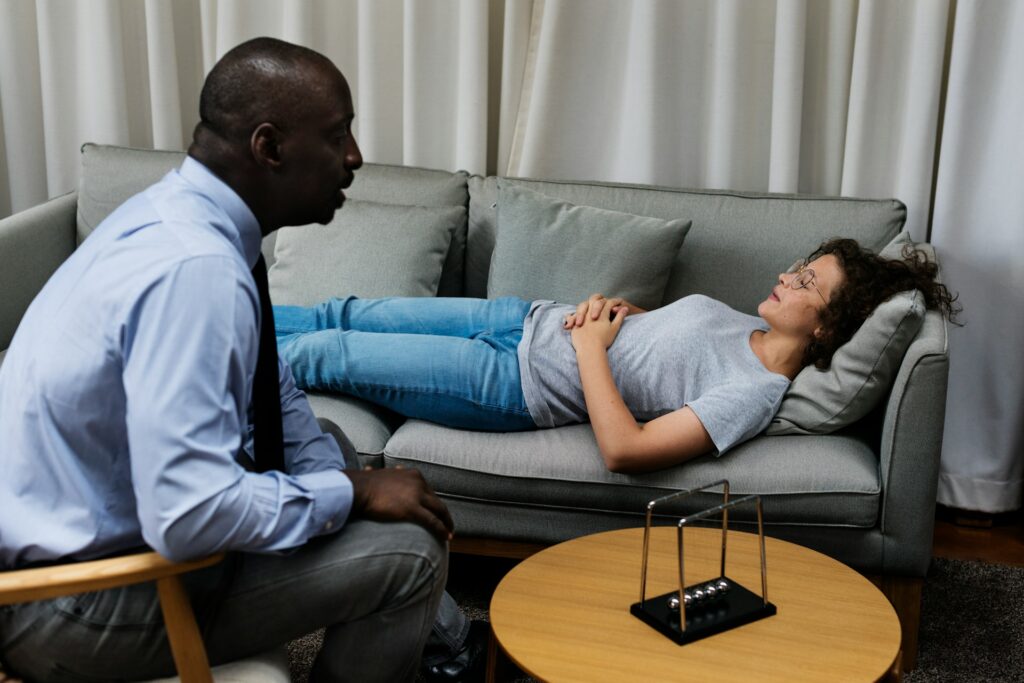Therapy can sometimes feel like a slow, uphill climb.

You might leave a session feeling like you haven’t made any progress, or that your problems are still as big and messy as they were when you first started. But therapy works in subtle ways that might not always be immediately obvious. If you’re second-guessing the process, here are ten signs that therapy is actually working, even if it doesn’t feel like it in the moment.
You’re more self-aware.

One of the biggest benefits of therapy is that it helps you become more aware of your thoughts, feelings, and behaviours. If you’re noticing that you’re picking up on your reactions in real-time—whether it’s recognising when you’re about to get defensive or when you’re slipping into old habits—that’s a huge win. This awareness means you’re starting to understand why you do what you do, which is a necessary first step towards making any meaningful change. Even if you’re still reacting in ways you don’t love, simply noticing it is progress. Over time, that awareness will help you make better choices.
You’re feeling more comfortable with discomfort.

Therapy isn’t always about feeling better right away; sometimes, it’s about learning how to sit with uncomfortable emotions. If you’ve noticed that you’re starting to tolerate discomfort a little better—that you’re able to sit through a tough conversation or feel your emotions without immediately shutting them down—then you’re doing the work. It might feel uncomfortable, but that’s a sign that you’re growing. It’s a shift from avoidance to acceptance, and that’s where real healing begins.
You’re noticing patterns in your behaviour.

A common theme in therapy is recognising the patterns in how you think and act. Maybe you’ve started to notice recurring themes in your relationships or the way you handle stress. Perhaps you’ve seen how certain triggers tend to set you off, or how your self-talk tends to follow a predictable pattern. If you’re starting to connect the dots between what you’re doing and the outcomes you’re getting, therapy is working. It might not feel like it’s changing things right away, but understanding these patterns is crucial for making lasting changes.
You’re more compassionate with yourself.

Self-criticism can be a major barrier to growth, but therapy helps you start shifting that internal dialogue. If you’re noticing that you’re being kinder to yourself or that you’re learning to forgive yourself more easily, that’s a huge sign that therapy is having an impact. Instead of beating yourself up for mistakes or perceived flaws, you’re learning to approach yourself with empathy and understanding. This change in attitude towards yourself is fundamental to healing and personal growth.
You’re feeling more in control of your emotions.

Emotional regulation doesn’t happen overnight, but you might start noticing that you’re able to handle your emotions better than you used to. Maybe you’re no longer getting as angry or upset as quickly, or you can calm yourself down faster than before. It’s not about never feeling anger or sadness; it’s about having the tools to manage those feelings without letting them completely take over. If you’re finding that you’re able to stay grounded during emotional moments, you’re making significant progress.
You’re setting and enforcing boundaries.

Therapy helps you understand the importance of setting healthy boundaries, whether it’s with family, friends, or at work. If you’re finding it easier to say “no” when you need to or speak up for yourself when someone crosses a line, that’s a sign that therapy is working. Learning to establish and enforce boundaries is crucial for your mental and emotional well-being, and it can take time to put those boundaries into practice. If you’re starting to protect your energy in ways you didn’t before, you’re on the right track.
You’re less reactive and more reflective.

When therapy starts to work, you might find that you’re reacting to situations less impulsively. You’re taking more time to think before you speak or act, and you’re reflecting on your responses rather than just reacting out of habit. If you’re noticing this shift, it means you’re learning how to create space between stimulus and response. That pause is key for making conscious decisions, and it’s a major step toward emotional maturity.
You’re starting to think about the future with more hope.

When you’re in the thick of difficult emotions, it’s easy to get stuck in the present moment and feel like things will never change. But as therapy works, you might start to notice that you’re thinking more positively about the future. Maybe you’re starting to feel more optimistic about your ability to handle life’s challenges, or you’re seeing more possibilities ahead of you. Even if you’re not there yet, just a shift in how you think about the future is an important sign that therapy is doing its job.
You’re noticing improvements in your relationships.

Therapy can improve the way you interact with others, and sometimes this shows up in subtle ways. Maybe you’re feeling less defensive in arguments, or you’re communicating more clearly with your partner or friends. Perhaps you’re better at listening without jumping in with advice, or you’re able to be more present with your loved ones. If you’re seeing positive changes in how you relate to the people around you, it’s a clear sign that therapy is helping you grow emotionally.
You’re willing to confront tough stuff.

Therapy often involves facing things you’d rather avoid—whether that’s past trauma, deep-seated fears, or painful emotions. If you’re finding that you’re more willing to confront difficult issues, even when they make you uncomfortable, therapy is working. It’s easy to shy away from tough conversations or feelings, but by facing them head-on, you’re building resilience and gaining the tools to handle life’s challenges more effectively.


